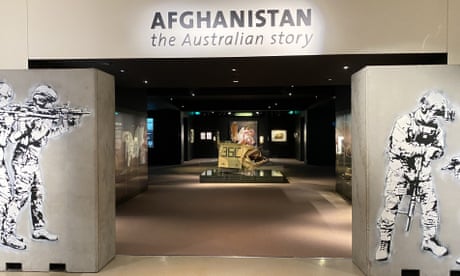Foreign affairs and defence correspondent
The Guardian
Thu 12 Sep 2024 00.50 EDT
The defence minister, Richard Marles, gave an update to parliament on Thursday on the government’s progress in acting on the longstanding recommendations from the Brereton inquiry into alleged war crimes in Afghanistan.
He addressed the long-debated issue of command accountability, saying this was “the final step in government action emanating from the Brereton report”.
Marles told parliament that any criminal investigations and prosecutions were a separate matter that were being handled “at arms-length from the government” and could still take “years” to complete.
Marles sent letters to potentially affected individuals – understood to be fewer than 15 people – on Wednesday to notify them about whether their awards were being cancelled or were being retained.
Guardian Australia understands there are fewer than 10 individuals whose awards will be cancelled.
Marles said he would not disclose the names or details due to privacy obligations, but that Australia was holding itself accountable for the allegations.
Maj Gen Paul Brereton, who led a four-year-long inquiry that presented its findings in 2020, found “credible” information to implicate 25 current or former Australian special forces personnel in the alleged unlawful killing of 39 individuals and the cruel treatment of two others in Afghanistan.
Investigations into criminal allegations are the responsibility of a separate body, the Office of the Special Investigator, and there is no information to suggest the actions announced on Thursday relate to those accused directly of committing misconduct.
Brereton wrote in his report that unnamed special operations troop, squadron and task group commanders bore “moral command responsibility and accountability for what happened under their command and control”.
Marles told Guardian Australia shortly after Labor won the 2022 election that he was “deeply committed” to reforming the ADF and that “history will judge us” on the response to the Brereton inquiry.
But successive governments have long delayed making a decision on command accountability.
In a final report to the then defence minister, Peter Dutton, before the 2022 election, an oversight panel raised concerns that “the failure for any accountability to be required from senior officers … is widely resented in the [special forces] and a factor contributing to lowered morale”.
The Afghanistan inquiry implementation oversight panel, led by the former intelligence watchdog Vivienne Thom, renewed these concerns in another report released in May 2024.
Marles received advice in May 2023 from the then chief of the Australian defence force, Angus Campbell, about the command accountability, including recommendations about stripping some commanders of honours or awards.
Campbell commanded Joint Task Force 633, based in the United Arab Emirates, from January 2011 to January 2012 and made regular visits to Afghanistan in that time, but there is no suggestion he will lose his Distinguished Service Cross.

At a press conference on Thursday, Marles was asked why Campbell would not lose that medal. The minister replied that he had “followed Brereton’s report to the letter”.
The report said Joint Task Force 633 “did not have the degree of command and control” over special operations forces in Afghanistan “on which the principle of command responsibility depends”.
But the Coalition’s defence spokesperson, Andrew Hastie, a former SAS captain who served in Afghanistan, told parliament he disagreed with the Brereton report on “how far it reaches up the chain in assigning responsibility”.
“I believe that our troops were let down by a lack of moral courage that went up the chain of command all the way to Canberra – including in this House,” Hastie told parliament on Thursday.
“From Tarin Kowt to Kabul to Kandahar to Dubai to Canberra, those in the chain of command should have asked more questions.”
The crossbench senator Jacqui Lambie accused the government of “throwing our diggers under the bus” and said it was “insensitive” for Marles to make the announcement just days after the royal commission report into veteran suicide.
Lambie told the Senate: “Yet, in his response, he still managed to forget one key thing: the accountability of the top brass.”
The decision on command accountability is separate from the previous government’s decision to retain the meritorious unit citation for more than 3,000 current or former ADF members who served in Afghanistan between 2007 and 2013.
Dutton overruled advice from defence leadership and decided to keep that citation in place. Marles had long insisted that the Labor government would not “rake over old coals in terms of decisions that have been made by the former government”.
Compensation to Afghan victims of alleged Australian war crimes has also been a long-debated issue but is finally progressing with a new regulation setting up a pathway for an Afghanistan inquiry compensation scheme.
The regulation says recipients must be considered by the ADF chief to be “reasonably likely to be the victim of an assault or property damage or a family member of a victim of an unlawful killing” and must not be a member of a terrorist organisation.
The executive director of the Australian Centre for International Justice, Rawan Arraf, said it was “disappointing that it has taken the Australian government over three-and-a-half years to address redress avenues for Afghan victims and their families” and raised concerns about “serious shortcomings of the scheme”.
 Afghanistan Peace Campaign
Afghanistan Peace Campaign